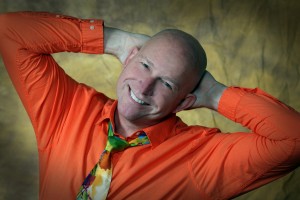The Spiritual Living philosophy, and those akin to it within the New Thought community and elsewhere, have long sought to redeem the term “mystic” from its association with the strange and supernatural. One of my dictionaries defines a mystic as one engaged in “occult rites and practices.” We might also reframe the term “occult.” Literally, it means hidden. Lots of wonderful, unscary things are hidden: Easter eggs, symbolic meanings, and many of our own strengths and abilities, until we unearth them.
I write, and read copiously, on the subject of esoteric spirituality. It’s the inside of the rind, if you will, that protects and nurtures the fruit of spiritual transformation. The outside of that rind is called the exoteric. In religious terms, a prayer you say or a song you sing is an exoteric practice. How you feel about the prayer or song, how it lifts your heart or alters your mind, is the esoteric. When it is said that “all religions are one,” it means that all are attempting to facilitate a sublime inner experience, in one way or another. Those various ways are the exoteric aspects of all the different religions – different words to one song, as the poet Rumi suggested.
New Thought’s working definition of a mystic is a person who senses the unseen behind the seen, or recognizes the primacy of nonphysical reality.
Evelyn Underhill wrote in her Practical Mysticism, “Moreover, as your meditation becomes deeper it will defend you from the perpetual assaults of the outer world. You will hear the busy hum of that world as a distant exterior melody, and know yourself to be in some sort withdrawn from it. You have set a ring of silence between you and it; and behold! within that silence you are free. You will look at the coloured scene, and it will seem to you thin and papery: only one amongst countless possible images of a deeper life as yet beyond your reach. And gradually, you will come to be aware of an entity, a You, who can thus hold at arm’s length, be aware of, look at, an idea – a universe – other than itself.”
You will hear it said that we are all mystics. The truth is that everyone is a mystic in the same sense that everyone is, say, a guitarist. The guitarist need not invent music per se, or musical notation, or how notes form a chord, or even create by hand the specific instrument he or she plays. Much is given. The one thing the person must certainly do is play. She or he need not play well, to the standard by which one might judge good playing, or play on a stage, or anywhere in earshot of anybody else, ever. But to be a guitarist, one must play.
Everyone is a potential guitarist, but only some choose to strengthen the fingers, build calluses, and learn scales. If, as this teaching assumes, the universe is one whole system, then every sentient being within the universe at some level knows oneness. But only some beings choose to operate primarily from that interior awareness. Some are missing an explanation, I suppose, in the way that not all children are handed guitars. But there’s a sort of magical way that a soul attuned to music somehow finds its way to an instrument. (Emerson said, “The soul had need of an organ here,” and the organ he was referring to was himself, or you or me, not a Hammond B-3.) There is a mysterious way that the person who chooses to live in recognition of a mystical Power pervading all creation, gets to.
Then that person must practice.
Are we all mystics? Yes and no. Yes, by nature, but not if we don’t revisit the practice, because then “the world is too much with us,” and we feel alone, left to our own devices, and afraid. Sometimes I’m doing the mystical thing and sometimes I’m the impatient guy in line someplace, short of time and feeling caught in the web of circumstance. It’s right then that I need to remember to meditate and pray. I may put these off and give in to the pressure. I may opt out because I seem to lack a requisite composure. Mystics are traditionally thought to have serene temperaments. Guitarists are traditionally thought to have really dexterous fingers, too, but Django Rinehardt had two that were severely damaged and Jerry Garcia was missing most of one, and on any list of the greatest to ever have plucked a string, those two are always near the top. We work with what we have, if we want it enough. And the one human want that these Spiritual Living principles speak to most often and most intensely is to know that we are not alone, and bereft, but are organs of the Universal Soul, whose lives are meaningful, and whose destinies are eternal.
— Jesse Jennings











